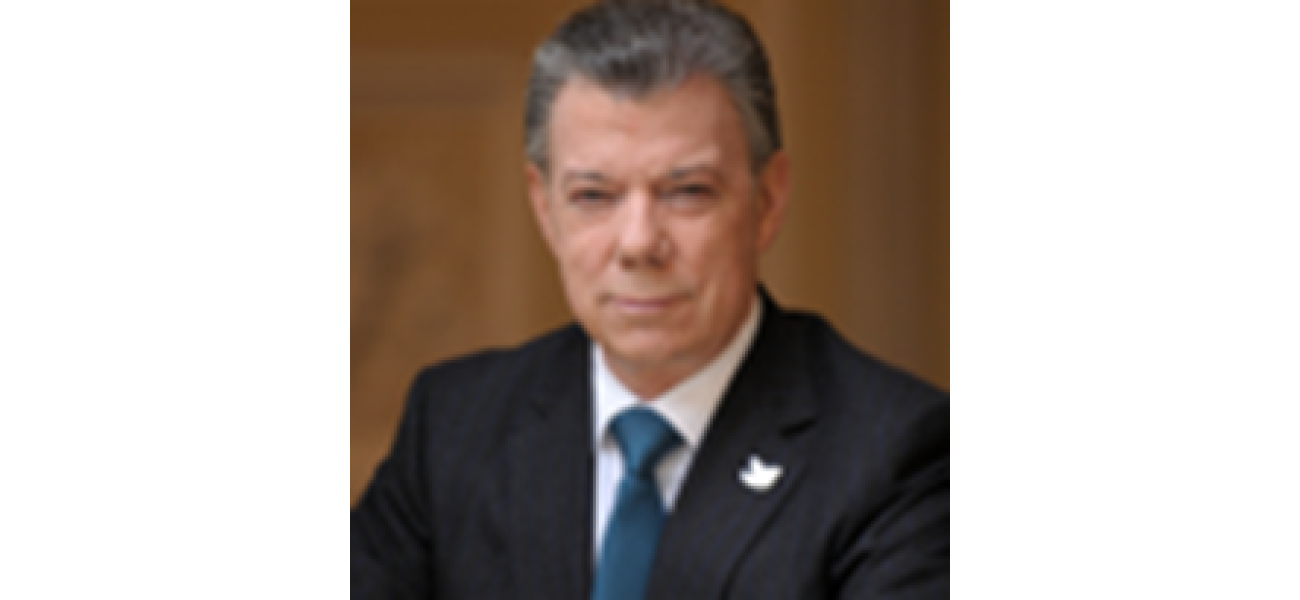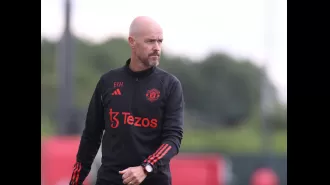Fix the Earth
Colombian President Juan Manuel Santos met with leaders of four indigenous groups on his first day in office 15 years ago.
October 26th 2025.

As I took office as Colombia's president 15 years ago, I had the honor of meeting with leaders from four indigenous peoples in the Sierra Nevada de Santa Marta - the Kogui, Arhuaco, Wiwa, and Kankuamo. Standing in the shadow of a breathtaking mountain range, my perspective on my role as a leader was forever changed by the wisdom they shared with me. They reminded me of our collective responsibility as temporary inhabitants of this wounded planet.
During our meeting, I was given a wooden baton, a symbol of power, to remind me of two crucial goals: achieving peace among our citizens after decades of conflict and making peace with nature. The indigenous leaders warned me that our relationship with the natural world had been damaged, and that we would face consequences if we did not take action. Just two weeks later, Colombia was struck by the devastating floods of La Niña, which left me spending the first two years of my presidency supporting those affected and preparing for future natural disasters.
Our world is currently facing a multitude of crises, both physical and ideological. Recent flooding in Pakistan claimed the lives of over 1,000 people, with millions being forced to evacuate. These regions were also hit by severe floods in 2022, further exacerbating the situation. In addition to natural disasters, there are also concerning attacks on multilateralism and the post-World War II institutional foundations of human rights. It seems that our entire value system is under attack.
However, as The Elders have recently stated, we cannot succumb to fatalism and cynicism, no matter how dire our circumstances may seem. Multilateralism was established for times like these - to guide us through disagreements and disasters, without any exceptions. This November, two major summits will be taking place to address global issues. The first is the second World Summit for Social Development, which 30 years ago brought together an unprecedented number of world leaders and marked a new era for multilateralism in the service of human development. The second summit, the United Nations Climate Change Conference in Belém, Brazil, will tackle the existential crisis of global warming.
During my time as president of Colombia, I witnessed firsthand that when disaster strikes, the poor are the ones who suffer the most. This is why we established various institutions to coordinate assistance after the 2010 floods. Now, it is crucial for all countries to heed climate warnings and strengthen their own resilience and adaptation policies. A timely report from researchers at the University of Oxford and the United Nations Development Programme highlights this issue, revealing that almost 80% of multidimensionally poor people in 108 developing countries, totaling 887 million individuals, live in regions exposed to at least one climate-related hazard.
The report also confirms that people in lower-middle-income countries are facing more overlapping climate hazards than those in low-income or upper-middle-income countries. Even though upper-middle-income countries have fewer poor people, they are still vulnerable to air pollution and flooding, among other hazards. These findings emphasize the need for a just energy transition. In 2016, Colombia introduced Latin America's first carbon tax, and now, leading up to COP30, The Elders are calling on G20 countries to use their financial advantages to "turbocharge the implementation of the Paris Climate Agreement and the Global Biodiversity Framework." Last year at COP29, world leaders pledged to provide $300 billion to support these efforts, but the total amount needed is closer to $1.3 trillion. In light of this significant gap, we welcome the International Court of Justice's recent advisory opinion, stating that states are legally responsible for climate harms, especially those caused by the fossil-fuel industry.
With the Planetary Health Check warning us of accelerating deterioration and the growing risk of reaching dangerous tipping points, it is urgent that we improve our understanding of where and how both the planet and its people are suffering. This means revitalizing efforts to support the interconnected agendas of climate action and poverty reduction. When I left office in 2018, I had the opportunity to reconnect with the indigenous leaders who had entrusted their hopes to me. I tried to return the baton, but to my surprise, they asked me to keep it. They also shared a new principle that the international community should consider - the spiritual bond between humans and nature. They emphasized that nothing should be taken without first asking for permission and giving something in return. We ignore this bond at our own peril. Today, many connections are broken - between peoples and between humans and the planet. Our task in the years ahead is to mend and restore these connections.
As a former president of Colombia and current Chair of The Elders, I am honored to be able to share these reflections with you. In 2016, I was humbled to receive the Nobel Peace Prize, and I remain committed to promoting peace and justice in our world. Let us all work together to heal our planet and create a brighter future for all.
During our meeting, I was given a wooden baton, a symbol of power, to remind me of two crucial goals: achieving peace among our citizens after decades of conflict and making peace with nature. The indigenous leaders warned me that our relationship with the natural world had been damaged, and that we would face consequences if we did not take action. Just two weeks later, Colombia was struck by the devastating floods of La Niña, which left me spending the first two years of my presidency supporting those affected and preparing for future natural disasters.
Our world is currently facing a multitude of crises, both physical and ideological. Recent flooding in Pakistan claimed the lives of over 1,000 people, with millions being forced to evacuate. These regions were also hit by severe floods in 2022, further exacerbating the situation. In addition to natural disasters, there are also concerning attacks on multilateralism and the post-World War II institutional foundations of human rights. It seems that our entire value system is under attack.
However, as The Elders have recently stated, we cannot succumb to fatalism and cynicism, no matter how dire our circumstances may seem. Multilateralism was established for times like these - to guide us through disagreements and disasters, without any exceptions. This November, two major summits will be taking place to address global issues. The first is the second World Summit for Social Development, which 30 years ago brought together an unprecedented number of world leaders and marked a new era for multilateralism in the service of human development. The second summit, the United Nations Climate Change Conference in Belém, Brazil, will tackle the existential crisis of global warming.
During my time as president of Colombia, I witnessed firsthand that when disaster strikes, the poor are the ones who suffer the most. This is why we established various institutions to coordinate assistance after the 2010 floods. Now, it is crucial for all countries to heed climate warnings and strengthen their own resilience and adaptation policies. A timely report from researchers at the University of Oxford and the United Nations Development Programme highlights this issue, revealing that almost 80% of multidimensionally poor people in 108 developing countries, totaling 887 million individuals, live in regions exposed to at least one climate-related hazard.
The report also confirms that people in lower-middle-income countries are facing more overlapping climate hazards than those in low-income or upper-middle-income countries. Even though upper-middle-income countries have fewer poor people, they are still vulnerable to air pollution and flooding, among other hazards. These findings emphasize the need for a just energy transition. In 2016, Colombia introduced Latin America's first carbon tax, and now, leading up to COP30, The Elders are calling on G20 countries to use their financial advantages to "turbocharge the implementation of the Paris Climate Agreement and the Global Biodiversity Framework." Last year at COP29, world leaders pledged to provide $300 billion to support these efforts, but the total amount needed is closer to $1.3 trillion. In light of this significant gap, we welcome the International Court of Justice's recent advisory opinion, stating that states are legally responsible for climate harms, especially those caused by the fossil-fuel industry.
With the Planetary Health Check warning us of accelerating deterioration and the growing risk of reaching dangerous tipping points, it is urgent that we improve our understanding of where and how both the planet and its people are suffering. This means revitalizing efforts to support the interconnected agendas of climate action and poverty reduction. When I left office in 2018, I had the opportunity to reconnect with the indigenous leaders who had entrusted their hopes to me. I tried to return the baton, but to my surprise, they asked me to keep it. They also shared a new principle that the international community should consider - the spiritual bond between humans and nature. They emphasized that nothing should be taken without first asking for permission and giving something in return. We ignore this bond at our own peril. Today, many connections are broken - between peoples and between humans and the planet. Our task in the years ahead is to mend and restore these connections.
As a former president of Colombia and current Chair of The Elders, I am honored to be able to share these reflections with you. In 2016, I was humbled to receive the Nobel Peace Prize, and I remain committed to promoting peace and justice in our world. Let us all work together to heal our planet and create a brighter future for all.
[This article has been trending online recently and has been generated with AI. Your feed is customized.]
[Generative AI is experimental.]
0
0
Submit Comment





